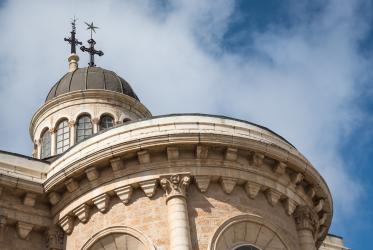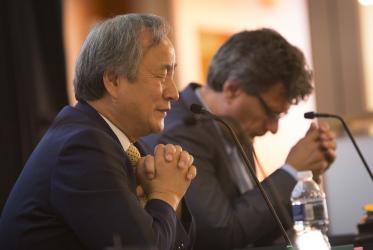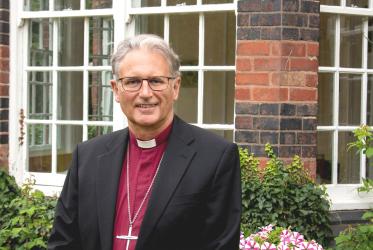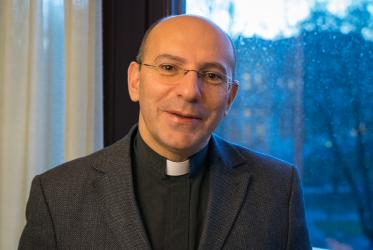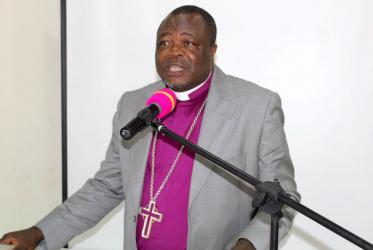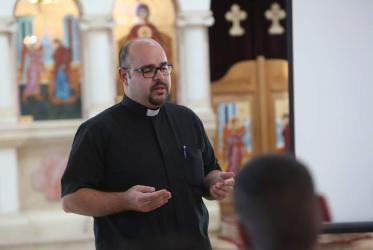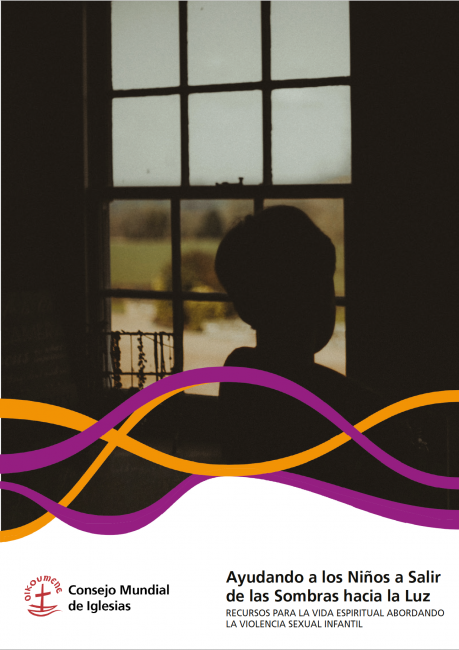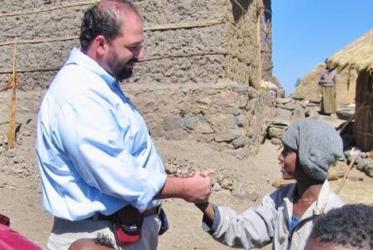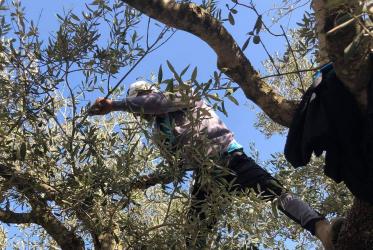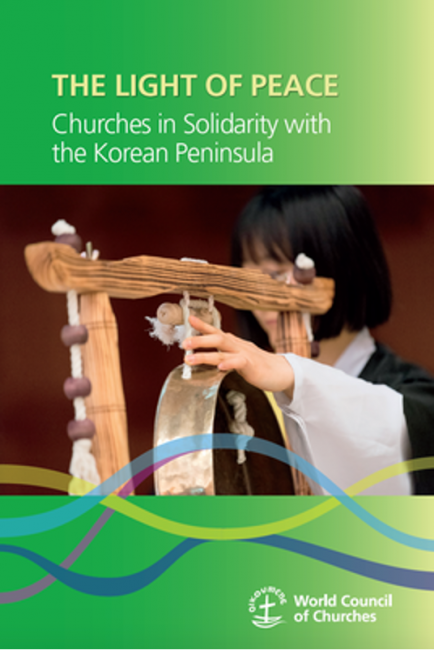Displaying 101 - 120 of 133
Bishop Hee-Soo Jung: “Prayer is a radical action”
11 December 2020
“Coventry Cathedral continues to speak a word of hope to the world”
10 December 2020
Palestinian Christian peace worker yearns for courageous leaders
10 December 2020
A hopeful, but not optimistic Palestinian ecumenist
09 December 2020
Cameroon conference on peace empowers religious leaders
30 November 2020
Fr Jamal Khader: “We need to keep hope alive” in Palestine
25 November 2020
Cooler Earth - Higher Benefits
Actions by those who care about children, climate and finance.
20 November 2020
Helping Children Out of the Shadows and Into the Light: Brochure
Church Resources For Ending Sexual Violence Against Children
04 November 2020
Helping Children Out of the Shadows and Into the Light: Spiritual booklet
Resources For Spiritual Life Addressing Sexual Violence Against Children
04 November 2020
“Your life is in peace when you collect the olives"
29 October 2020
